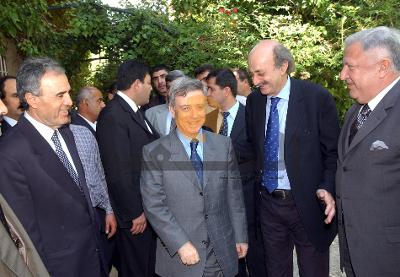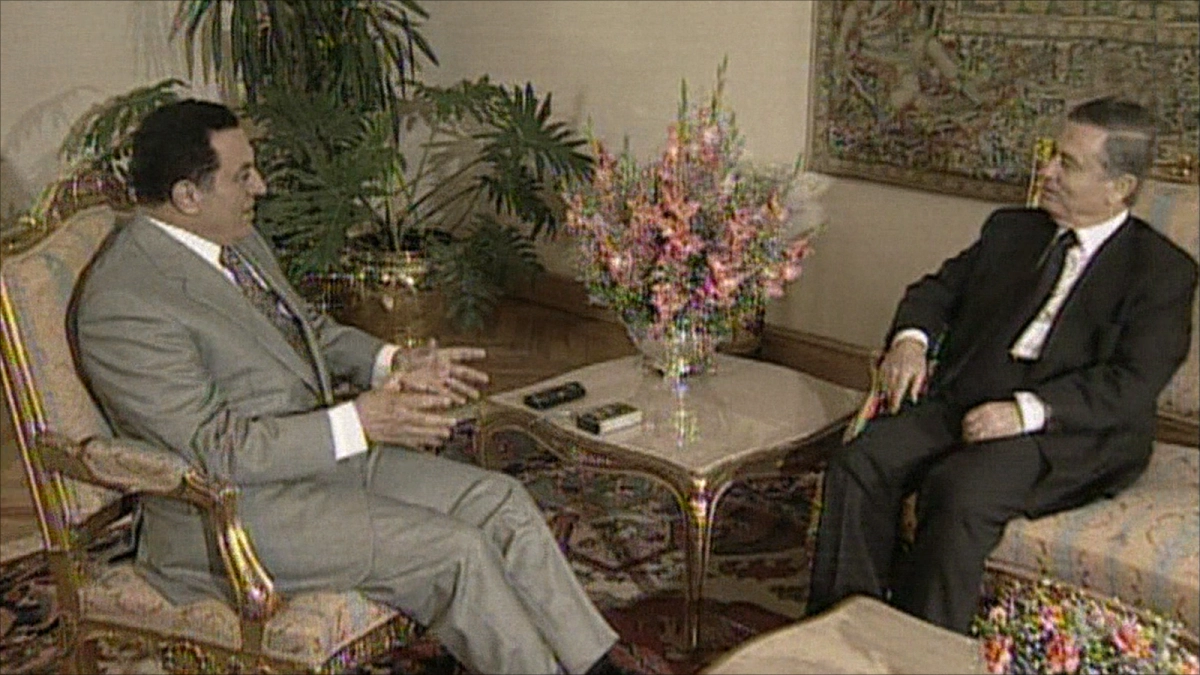Jumblatt: Great Storms Are Approaching, But I Don’t Think We’re Afraid
This scene, barely twenty-one hours old in twenty-one years, features Syrian Vice President Abdul Halim Khaddam at the Mukhtara Palace amidst a popular ‘display.’ Observers suggest that Abu Jamal (Walid Jumblatt) would not have favored this display since the current Lebanese conditions are different from any other time.
The important thing is that this occasion allowed the head of the Progressive Socialist Party, Walid Jumblatt, to ‘correct’ all the ‘blemishes’ that marked his relations with Damascus over the past two years.
With Khaddam were Baath Party National Command member MP Assem Qanso and Major General Ghazi Kanaan, head of the Syrian security and intelligence apparatus in Lebanon.
Attendance and Changes
Notably, among the attendees were delegations from Hezbollah and the Amal Movement, hinting at the possibility of a new political axis emerging after increased discussions, including those by President Emile Lahoud, about forthcoming changes in the region.
Jumblatt welcomed Khaddam, noting that ‘at certain stages there was a divergence concerning Lebanon and Lebanese specificity, but in difficult times, Mukhtara is part of the Levant, part of Syria, part of Arabism.’
He recalled the period before the establishment of civil peace in the country, praising former Chief of Staff General Hikmat Shihabi and Major General Ghazi Kanaan. He said, ‘Lebanese blood mixed with Syrian and Arab blood for stability and civil peace.’
Great Storms
Jumblatt observed that ‘great storms are looming over the region, but I don’t think we are afraid of that; we have endured the worst and prevailed.’
He asked Khaddam to sign a photo of Jumblatt and his son, Taymour, in a Palestinian keffiyeh, ‘for the past and the future, as Syria’s signature is dear to us today.’
Different Readings
The Syrian Vice President noted that ‘there were different readings on some secondary issues, but on the main issues, the stance has been and will remain unified.’
He recorded ‘Brother Abu Taymour’s’ prominent role in the downfall of the May 17 Agreement (between Lebanon and Israel), which would have bound Lebanon and dealt a severe blow to Syria,’ reminding of ‘Jumblatt’s significant position, where he fought and struggled to overturn the agreement.’ He also mentioned that what is happening in Palestine does not only target the Palestinian people but all Arabs and their ability to survive.
He added, ‘To the extent that Arabs unite to support the intifada, they can set their feet on the right path. True, conditions are difficult, but the enemy’s conditions are worse. The future is ours, and the international situation does not look promising. What matters is steadfastness, and history repeats itself.’
Not Worth Responding
In response to journalists’ questions, Khaddam said, ‘The conditions set by Ariel Sharon for Syria to join the peace conference are not worth responding to.’



